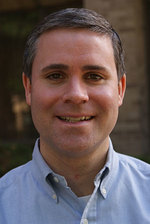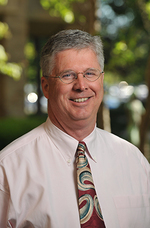
Homelessness in the United States is a persistent and complex problem. Each year more than 2.3 million people experience homelessness, 7.4 million people live “doubled up” with friends or family for economic reasons, and many more are on the brink of homelessness. In addition to the negative mental, developmental and health problems that arise among homeless adults and children, the issue costs a community more than $5,000 for each person who enters a shelter.
Nearly every major U.S. city offers a hotline for people facing homelessness to call in order to request emergency financial assistance. Despite the fact that more than 15 million people call these hotlines each year, little has been done to understand what effect, if any, they have on homelessness.
James Sullivan, Rev. Thomas J. McDonagh, C.S.C., Associate Professor of Economics at the University of Notre Dame, and William Evans, Keough-Hesburgh Professor of Economics, both co-founders of the Wilson-Sheehan Lab for Economic Opportunities, led a study of the Homelessness Prevention Call Center (HPCC) in Chicago. Run by Catholic Charities Chicago, HPCC is one of the largest in the nation, taking on average 70,000 calls per year. Sullivan and Evans’ group found that these hotlines have a considerable effect on people facing homelessness, and that emergency financial assistance successfully prevents homelessness — if funding is available.
 James Sullivan
James Sullivan
The study, published in the Aug. 12 edition of Science, examines the impact of financial assistance for 4,500 individuals and families who called the HPCC between 2010 and 2012. The researchers linked information from the call center to administrative data on entries to and exits from Chicago homeless shelters, collected by All Chicago, a social services initiative whose goal is to help the homeless. Because availability of funding for the financial assistance offered by the HPCC varies on a day-to-day basis, the researchers were able to look at the shelter entry rates of people seeking assistance on a day when funding is available compared to callers seeking assistance when no funding is available. Sullivan and Evans found that people in the first group are 76 percent less likely to enter a shelter within six months of their call than people in the latter group. Notably, even a year after calling, people in the first group are significantly less likely to become homeless.
“Policymakers and housing experts have long debated how best to address the persistent problem of homelessness in the United States,” Sullivan said. “Our study shows that not only do targeted prevention programs work, but they also can save the community money.”
This study, the first to show that emergency financial aid significantly reduces homelessness, indicates that call centers across the U.S. that have insufficient resources to serve their communities should target families that have the greatest risk of homelessness — those with a very low income. The results also indicate that policymakers should consider emergency financial assistance as an effective, evidence-based approach for preventing homelessness.
 William Evans
William Evans
Sullivan and Evans are the first faculty members from the College of Arts and Letters at Notre Dame to be published in Science, and are two of only a handful of economists nationwide to do so. Melanie Wallskog, a 2016 economics graduate, is co-author. The study is available online here: http://science.sciencemag.org/content/353/6300/694. In July, Sullivan and Evans were awarded a grant from the National Science Foundation to support the Wilson-Sheehan Lab for Economic Opportunities’ efforts to further study the impact of emergency financial assistance on those at risk of homelessness.
LEO is a research lab housed in the Department of Economics at the University of Notre Dame. LEO matches top researchers with leaders in social service agencies to conduct impact evaluations that identify the innovative, effective and scalable programs and policies that support self-sufficiency. LEO fulfills the University’s mission “to cultivate … a disciplined sensibility to the poverty, injustice and oppression that burdens the lives of so many.”
Contact: James Sullivan, 574-631-7587, jsulliv4@nd.edu; Bill Evans, 574 631-7039, wevans1@nd.edu